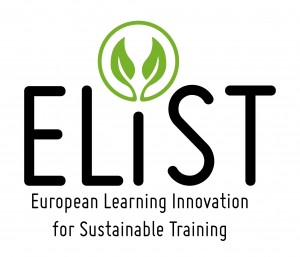 The ELIST project (“European Learning Innovation for Sustainable Training”) addresses an increasing competence shortage and mismatch of quality personnel on the European labour market, namely young entrepreneurs in the agricultural sector considering the situation of an ageing population. Improving the quantity and quality of personnel in the agricultural sector is a key factor for rural development and is currently in the centre of major challenges in a variety of fields such as food security, health, proper management, migrants integration, sustainable development goals, gender equality, to name but a few.
The ELIST project (“European Learning Innovation for Sustainable Training”) addresses an increasing competence shortage and mismatch of quality personnel on the European labour market, namely young entrepreneurs in the agricultural sector considering the situation of an ageing population. Improving the quantity and quality of personnel in the agricultural sector is a key factor for rural development and is currently in the centre of major challenges in a variety of fields such as food security, health, proper management, migrants integration, sustainable development goals, gender equality, to name but a few.
ELIST aims at stimulating entrepreneurship activity among rural populations by providing innovative learning tools, as well as creating the conditions for young urban populations to migrate to rural areas. ELIST therefore will foster employability and mobility of target groups by providing hands-on and inclusive learning methods to improve their competences (knowledge, skills and behaviour) and at the same time address emerging practices on the topic of sustainable development in the rural sector with tangible outcomes at the European level.
ELIST is developing a pilot training course on entrepreneurship competences including a curricula, a blended learning training method (residential and elearning), an open access internet networking platform, and guidelines for multipliers and for ECVET (European Credit System for Vocational Education and Training) framework practitioners.
In order to prepare a solid basis for sustainable impact in the regions one focus is given to capacity building of rural population and communities with the special support of a mentoring programme, a cooperation plan between policy-makers (public authorities), Vocational Education & Training providers in general, active civil society organisations (CSO) as well as other representative of the related sector.
The first activities in the regions are starting now with mapping the needs and requirements of target groups in/and rural areas. By implementing an online survey in the participating countries (Italy, Bulgaria, Austria, Greece, Spain, Portugal and Turkey) the feedback of target groups and stakeholders will be collected and analysed in order to design a training programme matching directly with the needs of the beneficiaries.
